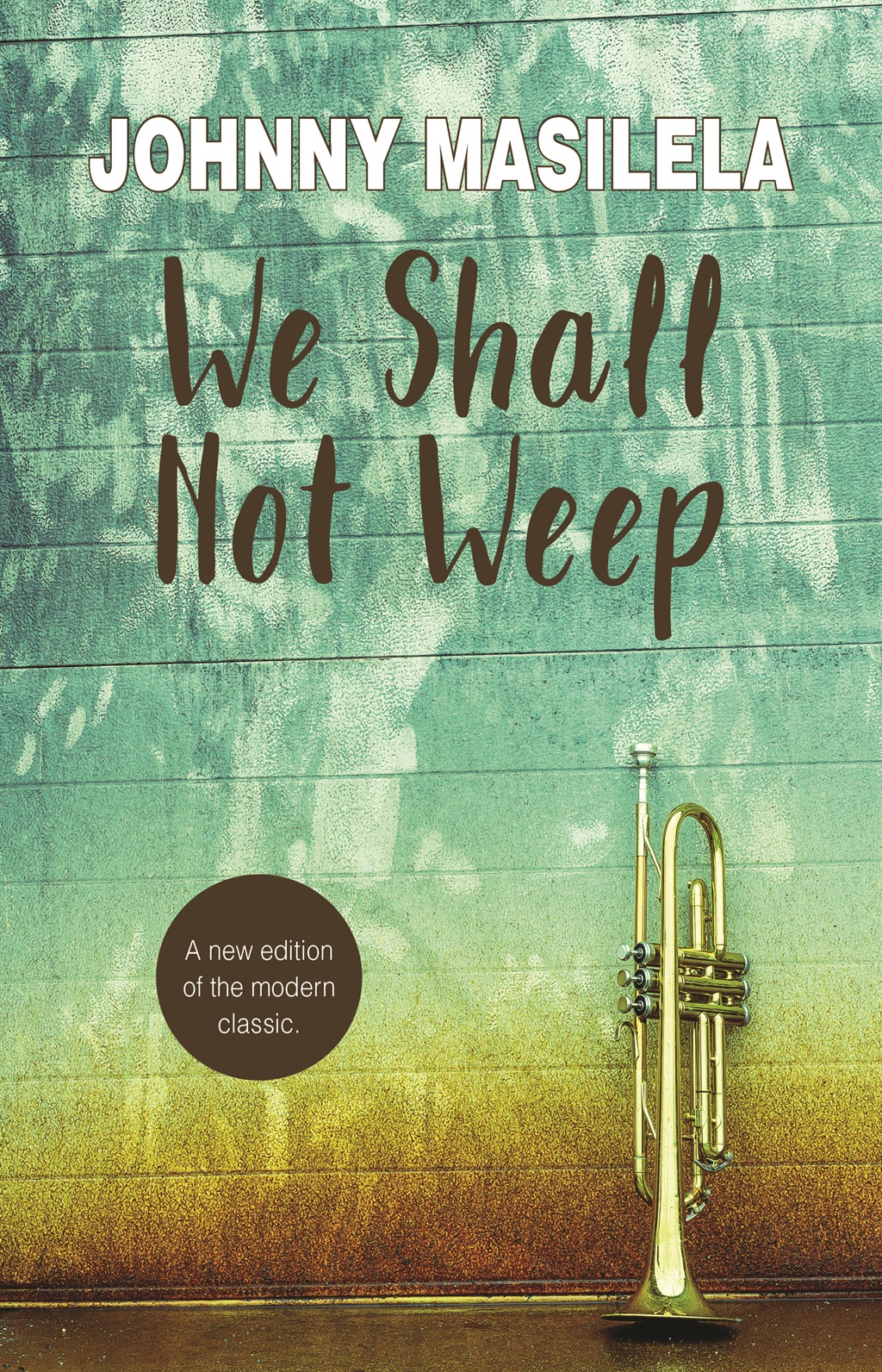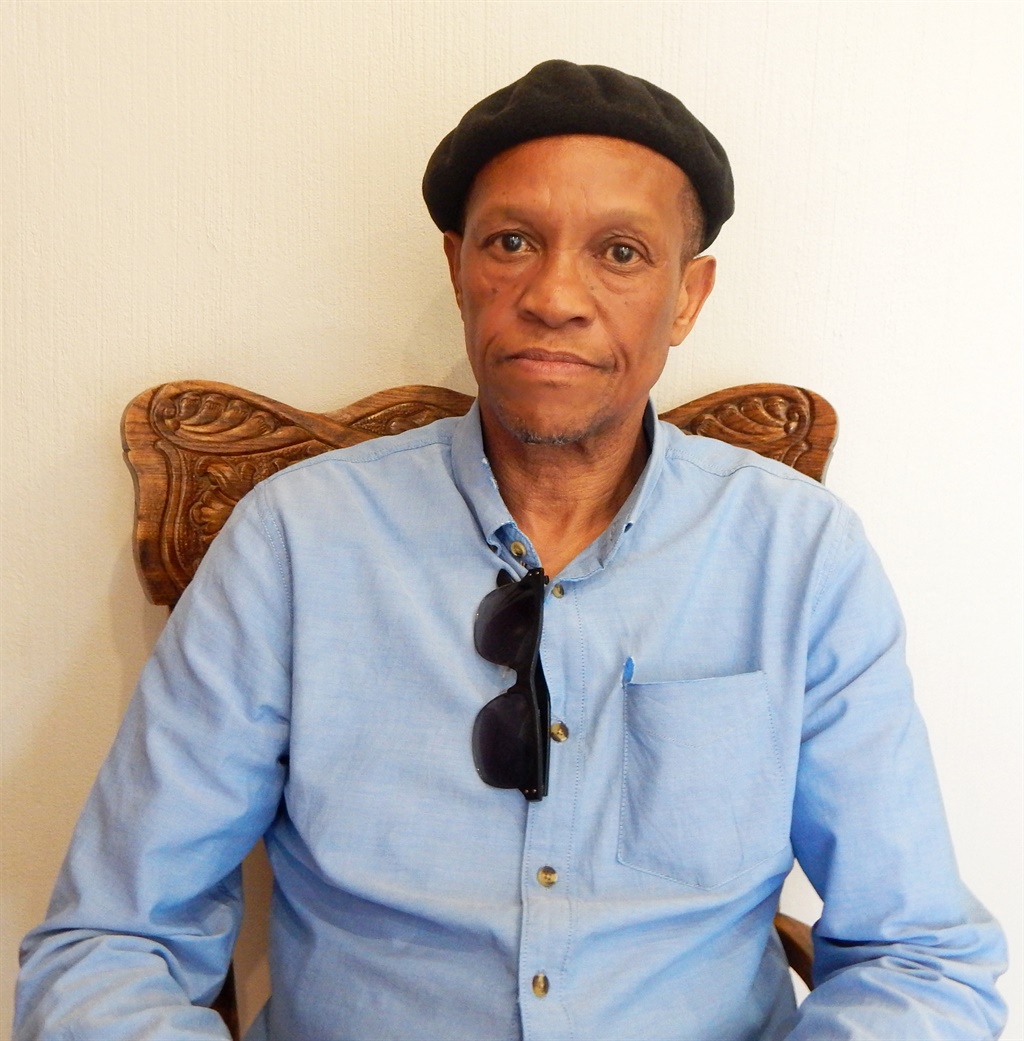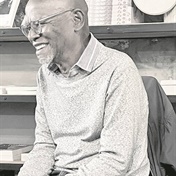
We Shall Not Weep by Johnny Masilela
Published by Kwela Books
132 pages
R230
We hear that the crops withered. That a goat, a cowbell clanking forlornly and hurting its throat, stood on its hind hoofs, nibbling at the dried-out sprouts of a fever tree.
The great river Mogalakwena, from which the tribespeople drew water and where the herdboys sang with the bull-frogs, lay without motion, belly-up, like the carcass of a starved rock python.
On the slopes of the little hills bordering the land of the Ndebele, the big black bull lay sprawled on its belly, unable to haul the plough. The iron blades failed to break into soil that had been baked into rock-hard clay by the fierceness of the sun.
But then, suddenly, a butcher-bird leapt from behind the dry ama-ntungulu bushes, chirping a symphony of bird songs, for the butcher-bird could imitate the calls of many of its cousins in the family of feathers.
The goat stopped nibbling at the sprouts for a while, ears flapping, and watched the butcher-bird land atop the fever tree.
And, as the butcher-bird twittered and wagged its tail for balance and the goat’s eyes glowed with wonder, the darkness cast over the faces of the tribespeople faded, their hearts melting with renewed hope for the gathering of the rain clouds.
Indeed, even the amageku – the old men and women of the village – felt slight relief from their chest pains and arthritic toes. Why? Because they who understand the sacred ways of the Ndebele say this rare communion between the goat and the butcher-bird is an omen of cleansing, of healing.
Mabhogo the king, he whose rule was guided by Laduma – the great god of the rain clouds and of the thunderbolt – sat surveying with his failing eyes a group of village menfolk squatting in a half-moon in front of him.
King Mabhogo, he of a crop of hair as white as ground maize, drew several puffs from a pipe filled with good dagga, closing and opening with his thumb the pipe’s bowl to rekindle the dying ember. The dry dagga leaves rattled in the smouldering flame, and clouds of lovely white smoke drifted from the king’s hairy nostrils. For a brief moment, he closed his eyes with sheer pleasure.
The village menfolk waited patiently, squatting on the ground with their knees drawn up, some scratching with dry twigs in the red, rock-hard soil.
King Mabhogo cleared his throat, cupped his eyes with his hand and lifted his wrinkled face to the sky, where not a single streak of white cloud showed. Slowly the king dropped his eyes and surveyed the gathered tribesmen.
“We need to assemble all the men around the anthill for the umphahlo gathering. Every man, including even perhaps the herdboys. For hau ‘mpela, indeed, it is clearly the ancestors who are holding back the rain clouds. And may we remember not to weep when the great god of the thunderbolt cracks the cowhide whip.”
“Laduuuma!” the tribesmen responded.
“We may not weep because Laduma’s anger is caused by no one else but us,” King Mabhogo continued; and, as was his nature, he paused for a while to see if anyone had a different opinion.
When the tribesmen remained silent, as they often did, the elderly king removed the pipe from his toothless gums, his blue tongue licking his lips briefly, and spoke again.
“Those who rest in the bowels of the earth teach us that to call a gathering as important as umphahlo, one among us must blow the horn of the kudu,” said King Mabhogo.
From among the tribesmen, a stick with a knobbed end rose into the air.
King Mabhogo cupped his palm over his eyes, and tried without success to identify the one holding the stick aloft.
“My eyes are not as sharp as when we fought the wars. Who are you, pointing your is’bugu to the skies?” King Mabhogo asked, spurts of smoke curling from his nostrils.
A tall man with long arms and a greying moustache rolled into curly ends, brought down the stick with the knobbed end. The man, Songwana Mabena, drew dagga smoke from a pipe stuck in a gap between teeth turned brown, we hear, by the sacred salts in the waters of Mogalakwena. As the goodness of dagga smoke drifted through Songwana Mabena’s brain, bringing back memories of long-ago battles, the tall man grunted with satisfaction, and leapt from among the gathered tribesmen.
“Laduuuma!” Mabena shouted. Then, turning to address the king, he said: “I greet you, ndabezitha. The one pointing the is’bugu to the skies is I, Songwana Mabena. Hau ‘mpela, if it was not for your failing eyes, you would recognise me. I am Songwana Mabena, ndabezitha.”
“Mabena?” asked the king. “Which Mabena? You are not the only Mabena, ndoda. There is the Mabena who was in my regiment when we went beyond the mountains to learn the sacred ways of our forefathers. Then there is also Mabena who carves wood. There are so many Mabenas; I could name them all, if my mind was still sharp. Say, which Mabena are you, great-grandson of Mzilikazi?”
“I am the one who carves wood, ndabezitha,” said Mabena, his smile revealing gaps between the dark brown teeth, with specks of white in places.
“Ah, Mabena. Now I remember. You were among the warriors who reclaimed the cattle from the white people. Ah, the white people. That was a long time ago.”
The king took a long draw of smoke from his pipe, and closed his eyes. “Now why did you raise your is’bugu like that? My memory is failing me again. What were we talking about?”
“We were talking about the rain clouds, ndabezitha. How the ancestors are holding back the rain clouds. How in his wrath Laduma has cracked the whip of hunger over the plains, the hills and the valleys of the land of the Ndebele. May we not weep over the actions of the great god of the thunderbolt!”
“Laduuuma!” the tribesmen responded.
“Ndabezitha,” Mabena continued, holding his pipe in one hand and his knobbed stick in the other, “I offer myself to blow the horn of the kudu.”
“Mmmm ... But you fought the white people, Mabena. Now you want to blow the horn.”
The king turned to the squatting tribesmen with a naughty glint in his eye. “This warrior wants to do everything. Soon he will lay claim to the throne of the Ndebele people.”




 Publications
Publications
 Partners
Partners









